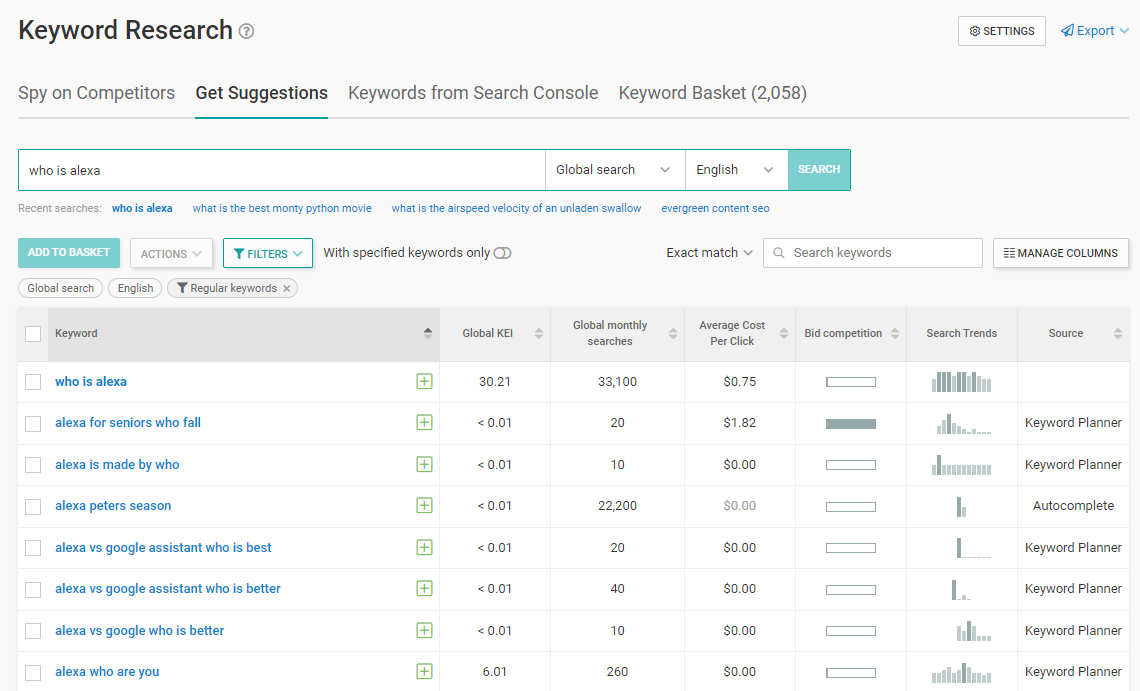When strategically utilized, ChatGPT can surpass manual human effort in output quality.
No, the tools won’t write better content.
Instead, I believe a writer armed with this technology can craft optimized content that’s better aligned with Google’s ranking criteria.
By exploring various methods of content scoring and entity extraction, I aim to guide you toward maximizing the tools’ benefits.
“Beyond keywords: How entities impact modern SEO strategies” discussed how and why to include relevant entities across your website (i.e., topical map).
This article will focus on why and how to use entities to create better-ranking SEO content.
Before discussing how software optimizes entity use for search results, let’s understand the similarities between entity SEO and OpenAI’s ChatGPT.
Building blocks of language
At its most basic level, language is built around:
- Subjects: What (or whom) the sentence is about.
- Predicates: Says something about the subject.
For example, in the sentence “The cat sat on the mat,” “The cat” is the subject and “sat on the mat” is the predicate.
Both Google’s search engine and OpenAI’s ChatGPT are designed to understand the fundamental structure of language.
Semantic search engines focus on understanding content in a computationally efficient way.
ChatGPT goes a step further, using far more computation to generate content.
Semantic search engines
Google’s search engine identifies entities, which are essentially the subjects of sentences on a webpage.
It then uses the context around those entities to understand the predicates – or what is being said about those entities.
This enables Google to understand the page’s content and how it might be relevant to a user’s search query.
The relationships under consideration are depicted in Google’s Knowledge Graph.
When Google analyzes an article, it uses its Knowledge Graph to gain deeper insights.
It identifies relevant entities and predicates in the content, which allows it to discern what keyword searches the piece is most pertinent to.
OpenAI’s ChatGPT
On the other hand, ChatGPT uses its transformer model and embeddings to understand both subjects and predicates.
Specifically, the model’s attention mechanism allows it to understand the relationships between different words in a sentence, effectively understanding the predicate.
The embeddings, meanwhile, help the model understand the relationships and meanings of the words themselves, which includes understanding the subjects.

Despite their vast differences, ChatGPT and entity SEO share a common capability:
Recognizing entities and predicates relevant to a topic. This commonality underscores how vital entities are to our comprehension of language.
Despite the complexities, SEO professionals should focus their efforts on entities, subjects and their predicates.
So how do we use this new understanding to optimize our content?
Optimizing new content for entities
Google identifies entities and their predicates on a webpage. It also compares them across potentially relevant pages.
In essence, it’s like a matchmaker, trying to find the best match between a user’s search query and the content available on the web.
Given that Google’s algorithm is optimized for high-quality results, start your optimization process by examining the top 10 Google results.






